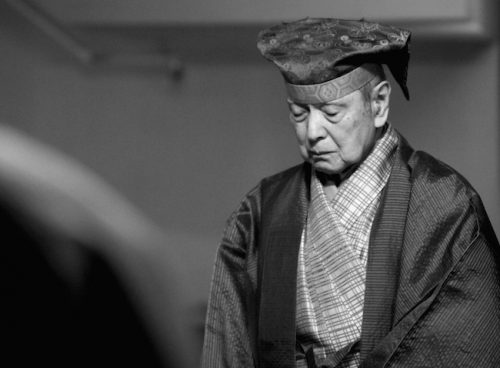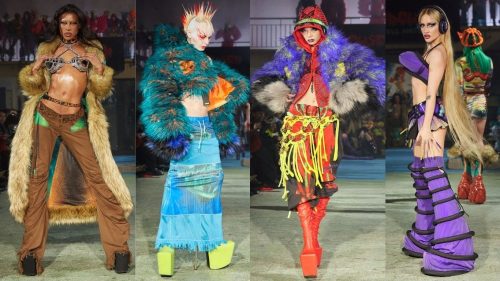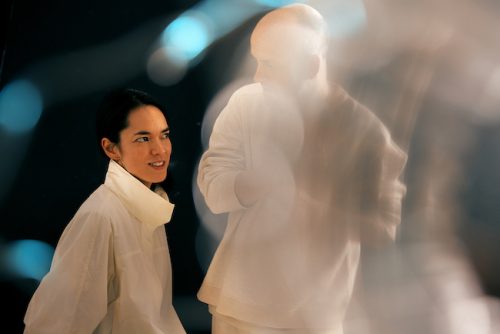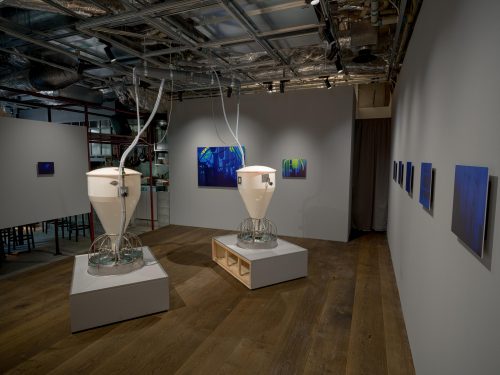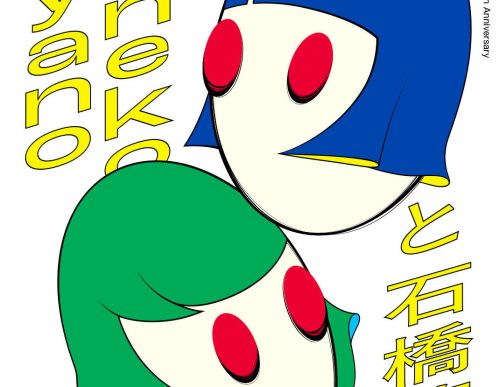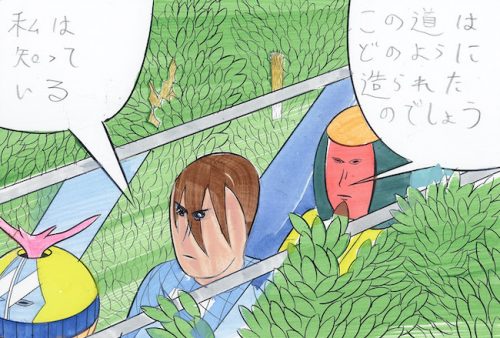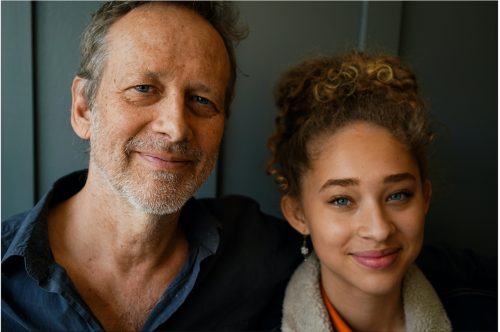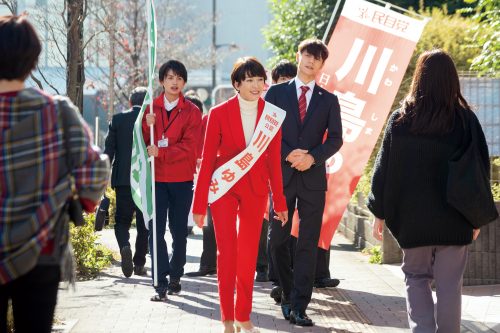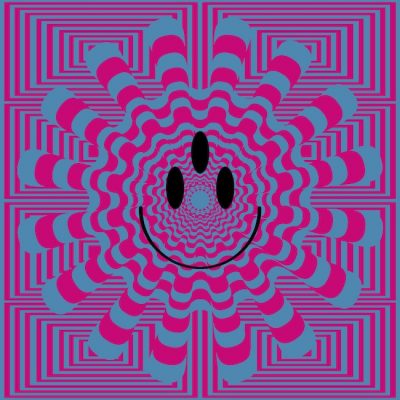
――When I first saw the poster with donuts and pink and pop illustrations, I didn’t know what I was going into, but this is such an incredible documentary. What inspired you to make it?
Alice Gu: The initial inspiration was very organic and unexpected. We had hired a new nanny at the time, and my husband had brought home these high-end gourmet donuts and offered them to her. But she said, “No, thank you. I only eat Cambodian donuts.” Long story short, a couple days passes and she brought us Cambodian donuts. It was delicious but we realized that it’s a glazed donut, you know, American donut. But she said, “No, no, this is Cambodian, because Cambodian people make it.” We said, “Well, if Cambodian people make an American donut, it’s still an American donut,” and she says, “No, no, no, you’re wrong.” I decided to put into Google up to prove her wrong. I put in “Cambodian donuts, Los Angeles” and all of these articles came up about Ted Ngoy, the Donut King. I clicked on every article and I couldn’t believe what I was reading. It was something that I never knew. As somebody who was born and raised here in Los Angeles, this is a story right under my nose. I was instantly fascinated and knew straight away that this was a story that needed to be told.
――How did you start on the project? How did you find Ted Ngoy?
Alice Gu: After reading all these articles, I knew straight away that this is the story needed to be told, but I also gleaned that Ted was old and living in Cambodia. I said, “How am I going to find this guy in this big world?” But I thought if the articles were true that he started all the donut shops, I must be able to call any donut shop that is Cambodian and they must have a connection to Ted. I was living in Santa Monica, California and I called the local donut shop that is most well-known here, DK’s Donuts. I was expecting somebody with heavily accented English to pick up the phone, but the person who picked up the phone had a young, cheerful voice and no accent at all. I almost said I had the wrong number or thought this wasn’t a Cambodian-owned shop. But I gave her the spiel anyway, and she says, “Well, you’re in luck. You’ve called the right person. I can help you. Ted is my great uncle. Are you on Facebook?”
――Wow.
Alice Gu: It was the Donut Princess in the film. So she immediately connected us on Facebook, and the next day, we were on our first Facebook audio call.
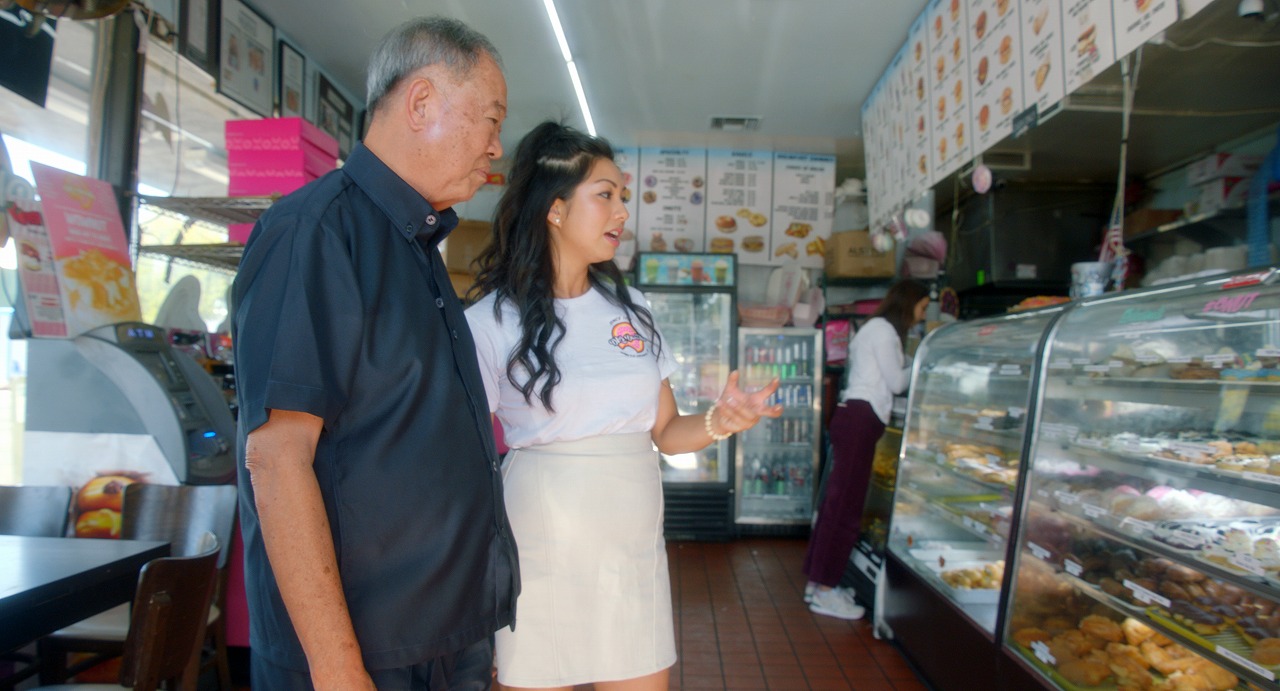
――When you talk to Ted for the first time, what did he think about you making a documentary about him?
Alice Gu: He was very surprised and said, “Are you sure you want to make a movie about me? I’m not famous. Nobody knows who I am.” I said, “I am sure that I want to tell the story and people will want to hear the story.” And I don’t know why he asked, but he said, “So you are American calling from Hollywood. Are you white?” I said, “Actually, I’m not. I’m Chinese American.” He said, “I’m Chinese, too! I’m Chinese Cambodian.” So I talked to him in Mandarin and we instantly broke the ice. We started speaking in Mandarin a little bit and by the end of the phone call, he said, “Yes. Let’s do it. I like you. Let’s make a movie.”
――This film consists of many layers such as Ted’s history, Cambodian history and American history. What was most challenging making this documentary?
Alice Gu: The most challenging was that this story is so complex and I didn’t want to make a mess. Because we only have 90 minutes, you don’t want it to be too long, and have to tell so much story in such a short amount of time, and to give enough context of why the stakes were so high, because they had to flee communism, they had to flee this oppressive regime, they had to flee genocide, and why they were in the U.S. willing to work so hard. So it was really weaving the history, Ted’s story, plus modern day and weaving that all in a way that made sense. This was such an important story for me to tell about the human condition and the human spirit, but with very heavy subject matter, genocide and the loss of 2 million people. That’s a third of the population of Cambodia died, and that’s not an easy thing to see.
――Right.
Alice Gu: I think particularly in this past year, the pandemic year, everyone has been at home or maybe stressed out. I feel like a lot of people wants to see films as a means to escape or not have it be so depressing. But I was so lucky because I had donuts that are so pink and pop in there, and everybody loves them. As soon as I knew that, I could take the audience on a journey. If it gets too dark and too heavy, I can always bring it back up to donuts and make it fun again. It’s been a fun response from people who have seen the film. They said, “Well, I had no idea but I loved it. I cried and then I was up again and down and up and down.” So it was really taking a ride just like Ted’s life.
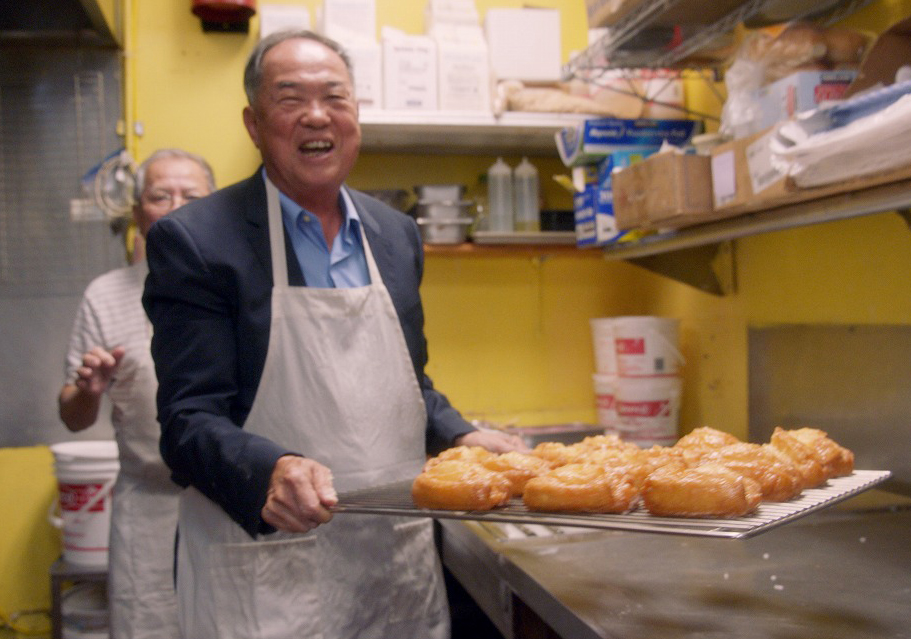

――Also, it was very effective how you mixed the illustration to depict Ted’s history. Why did you decide to add the illustration?
Alice Gu: I decided early on we needed the illustration because unfortunately, there was so little personal archive left. He is a Cambodian artist Andrew Hem and his paintings are unbelievable. I didn’t know him but I DMed him on Instagram, and he wrote back. He said, “I want to do it. I’m a donut kid. It’s the only job I’ve ever known until I went to art school. I worked in my parents’ donut shops.” I couldn’t believe it. He said, “My family actually knows Ted in the story, so I want to do it.”
――I assume maybe it was harder for Ted’s family to talk about their history in front of the camera, but it was great to get to hear their side of the story as well.
Alice Gu: It was really wonderful. I was actually able to do a screening with the family here in California. What meant the most to me was that they liked the film, because I wanted to have it be honest and authentic portrayal of their family story. For Christy, Ted’s ex-wife, she said “It was really incredible. But you know, it’s really hard to see.” Because she lost her parents and to really relive a lot of that, it was quite emotional for her.
――What did Ted think about the movie?
Alice Gu: We couldn’t be together because of Covid, so he watched it separately and we spoke after. He feels very proud of the movie and part of the family story.
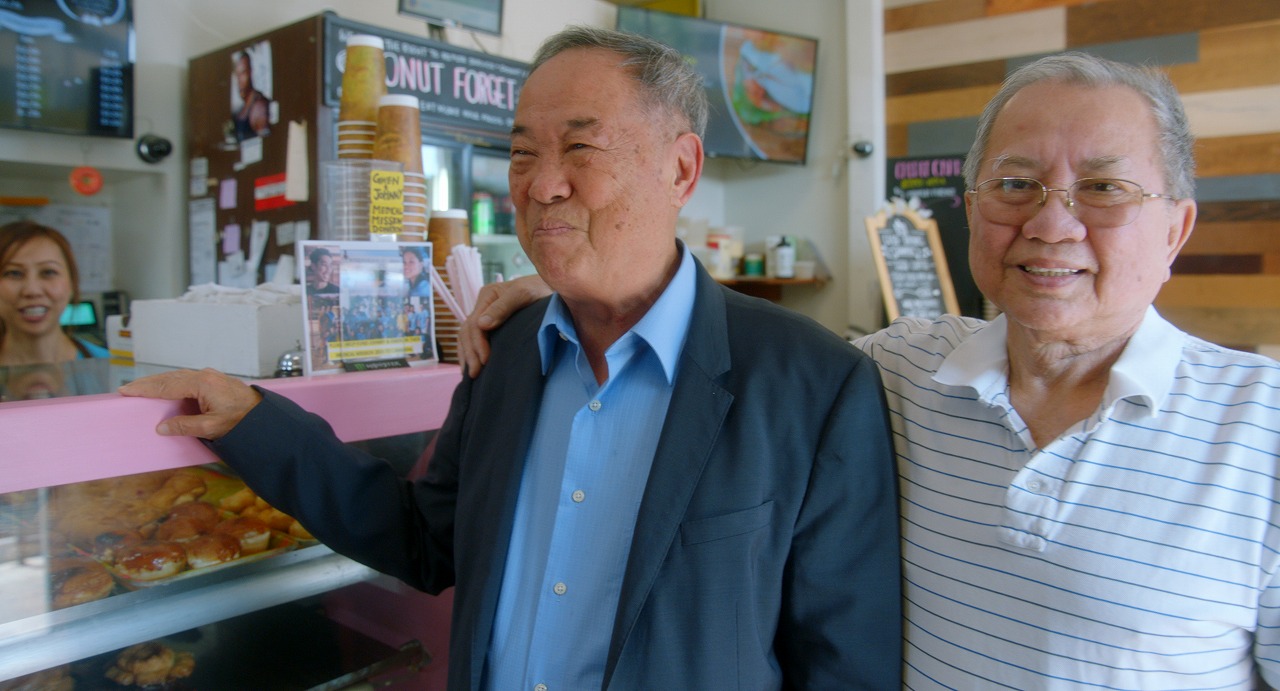
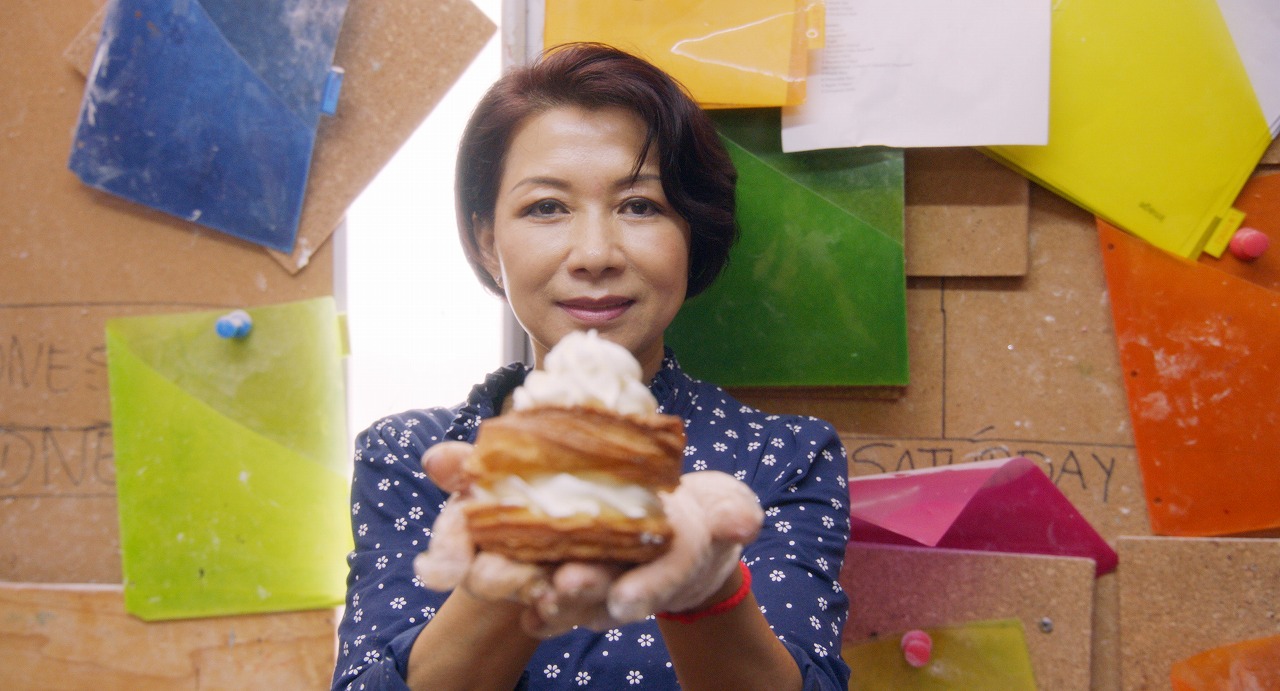
――This film is relevant as we still have refugee crisis around the world today. I was surprised to see how President Ford said that they had moral obligation to take immigrants, while the governor of California was against having Cambodian refugees resettled in the state.
Alice Gu: One of the most fascinating things that I discovered was President Ford. I didn’t know this piece of history. This is before I was born. To find this archive, a republican president who was saying that, it was so different from life in 2017, 2018, during the Trump era. This was the America that my parents came to. They said, “Everyone was so nice and welcoming and here to help you.” Then now, I can’t believe present day, there are attacks and is more divided than ever. It almost seems like we are going backwards. I really wanted to tell a tale of hope and inspiration that inspires you to be a better person or to think not to judge people immediately. You don’t know where they came from, what kind of hardships they lived, what kind of life they lived before they got here. And this has been particularly resonant, unfortunately with what’s happening in Afghanistan right now. Thousands and thousands of Afghan refugees are looking to be settled somewhere. I would hope we think about this a little bit, and maybe give them a chance and think about where they came from.
――Growing up, there never was enough Asian representation in movies or TV shows, so I was happy to learn a story about Asian immigrants.
Alice Gu: Again, the story was a surprise discovery for me. Of course, I like it because it’s Asian, but one thing I didn’t think about to your point of was representation. I just thought this was a wonderful film and I was excited to put it out there. But in the last year that this film has been released, the amount of people who have reached out, and particularly Cambodian, of course, young Cambodian Americans or Cambodians here, they feel a sense of pride. For a long time, all that has been represented for Cambodians is genocide and deaths which of course is a very huge part of their story. But all of the people who have reached out by email or social media that said, “I never in my life thought that I would ever see Cambodian donut shops in a Hollywood movie,” “I’ve never seen a movie that I could relate to, this is totally my family.” There was a girl from Thailand, she said, “This is totally my family story, just substitute donut shop for a Thai noodle shop and this is my family story.” And then I’ve had people reached out from the UK and they said, “My family is from Pakistan and I’m British. But this is my family story.” So it really is universal. Even if it just on the surface seems American and particularly about Cambodian, there is universality in the story.
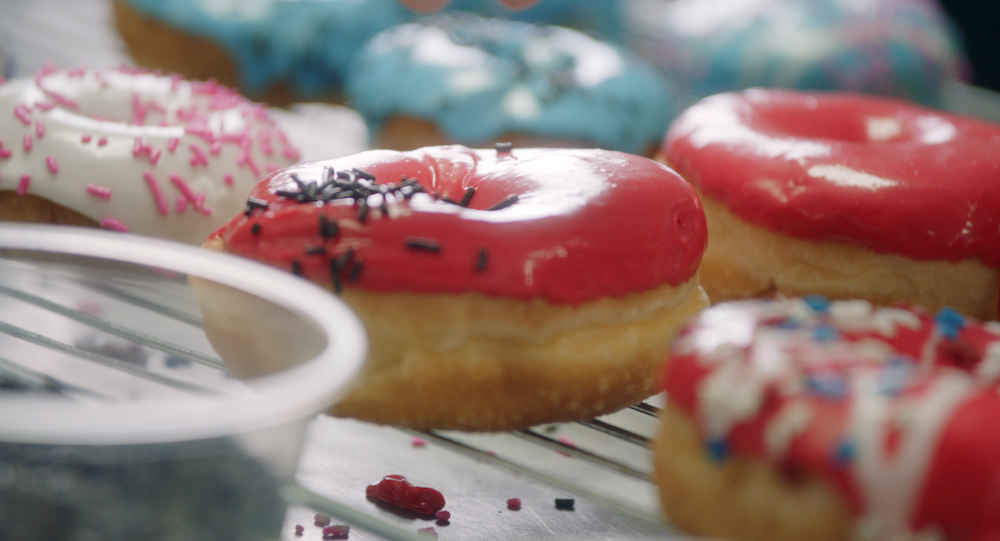

――As soon as I started watching it, I knew I love it, because you featured “C.R.E.A.M.” by Wu-Tang Clan! How did that happen?
Alice Gu: It’s crazy. So this is a documentary we made really with love and a shoestring budget. We didn’t have the money for a big song like “C.R.E.A.M.” And we were in editing I gave some direction to my editors about what I wanted for music, and Rommel, one of our editors, he put “C.R.E.A.M.” temporarily. As soon as I heard it, I was like, “There can be no other song! This is perfect!” It’s the double entendre. First of all, I love Wu-Tang Clan. I love the song. “C.R.E.A.M.” for donuts, “C.R.E.A.M.” for money making… This song is everything! So I reached out to my friend who is actually Japanese and she just gave me a phone number and it led to RZA. And I remembered when “Crazy Rich Asians” came out, Jon Chu wanted a song by Coldplay called “Yellow,” so he wrote a passion letter to Coldplay about why the song was so important to him. So I modeled my letter after Jon Chu’s letter. I wrote a letter to RZA saying why this song was so important to me and why there could be no other song. And it looked like it still couldn’t be cleared. Then I wrote another letter and said, “This is why this film is important. If you would be so kind and so generous to allow us to use this track for the meager funds that we have, a portion of our proceeds, we have a partner with Refugees International, we would like to donate to them.” And they cleared the song the next day. They wrote back and said, “Your letter really resonated with us. We love the message of the film. We are happy to let you use the song.” That was one of the best days of my life! Unbelievable [laughs.] It was a miracle.
――Also, you have Ridley Scott credited as the executive producer. How did he get on board?
Alice Gu: That was the other best day of my life [laughs.] We work in commercials here in Los Angeles, and my producer Jose had been working for Ridley’s and it’s called RSA. As dreamers when we were making this film, we were like, “Wouldn’t it be so cool if we could get Scott Free on and Ridley Scott could put his name on it?” You know, it was a dream. But when we had a cut of the film and showed it to Ridley through his VP, they said that was all he was talking about in the office and that he loved the film. I got the phone call that we need to leave an extra producer credit because Ridley wanted his name on there.”
――So now the Japanese audience is about to discover Ted’s story. What would you like them to reflect on when they leave the theater?
Alice Gu: I think the audience takeaway is a lot of things. One is to really believe in yourself. Trust yourself and believe that you can do it. So that’s Ted, really doing the impossible. When we were filming, we went to the place of his birth, this tiny village. And there is still a lot of very poor families and kids there who don’t have shoes. I was looking at one of the kids and thought Ted was like one of these kids with not enough food and no money for shoes. And this kid found his way to America and became a multimillionaire in less than three years. If this guy can do it, you can do anything. So that is one takeaway and the second takeaway is to be kind to people because you never know where they came from. Little kindness goes a long way.
――Lastly, why do you think donuts make us so happy?
Alice Gu: I looked into this, and it seems that almost every culture in the world has some version of fried sweet dough. Whether or not it’s in a round shape with the hole in the middle or if it’s long, there seems to be some sort of fried dough sweet comfort food. So every country almost seems to have their own version and I feel like that is why it’s this universally loved carb. But I say for the modern-day donut, who can’t like pink and sprinkles and chocolate! There is a donut for everybody and I don’t know if I want to know the people who don’t like donuts, right? What’s also been interesting that I’ve found is every culture has adapted donuts and they have their own flavors of donuts. It’s really the possibilities are endless, so I hope there’s something for everybody.
text nao machida

